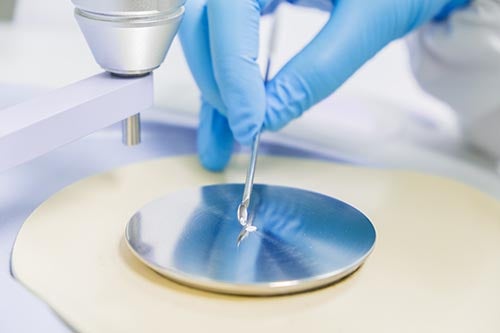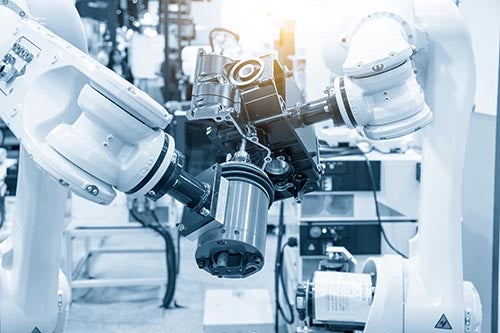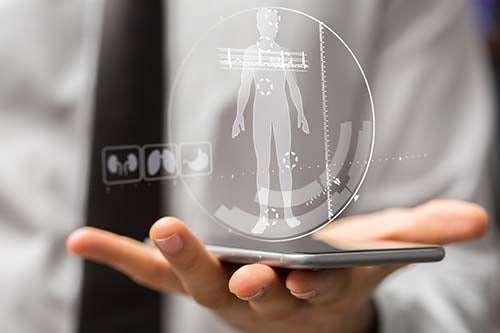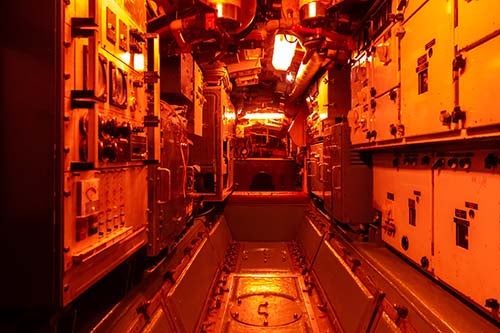
At the University of Rhode Island, the College of Engineering organizes its research across six strategic areas that reflect society’s greatest challenges and opportunities. These themes support interdisciplinary collaboration, innovation, and impact—regionally and globally.
Environmental Sustainability and Resilient Infrastructure
This theme addresses the design, monitoring, and optimization of resilient infrastructure systems while protecting natural resources. It includes water and wastewater treatment, climate adaptation, and sustainable transportation infrastructure.

Faculty & Expertise:
- Ali Shafqat Akanda – Water resources, climate modeling
- Christopher Baxter – Liquefaction and Soil Dynamics, coastal resiliency
- Aser Abbas – Geotechnical Earthquake Engineering
- Thomas Boving – Groundwater remediation, contaminant transport
- Aaron Bradshaw – Offshore Geotechnical Engineering
- Sumanta Das – Structural health monitoring, vibration analysis
- Joseph Goodwill – Water treatment, advanced oxidation processes
- K. Wayne Lee – Pavement materials, sustainable transportation
- Natacha Thomas – Sustainable transportation
- Christopher Hunter – Sustainable transportation
- Vinka Oyanedel-Craver – Wastewater and solids waste management
- Mehrshad Amini – Coastal and ocean structures
- Mayrai Gindy – Bridge Engineering
- George Tsiatas – Infrastructure Life-Cycle Assessment
- Leon Thiem – Water treatment
- Yang Lin – Nanoplastic and Contaminant Detection Technologies
- Valerie Maier Speredelozzi – System Engineering and Organizational Design
- Che-Wei Chang – Nature-Based Solutions and Wave-Structure Interaction
- Anthony Marchese – Alternative Fuels and Ignition Behavior
Advanced Materials and Nanotechnology
Research in this area explores the design, synthesis, and application of materials at multiple scales, including nanostructured systems, composite materials, and polymers. Applications span medicine, defense, aerospace, and energy.

Faculty & Expertise:
- Geoffrey Bothun – Nanomaterials, colloids, lipid interactions
- Irene Andreu – Bionanotechnology, targeted therapeutics
- Arijit Bose – Self-assembling nanoparticles, soft matter
- Michael Greenfield – Polymer simulations, thermodynamics
- Otto Gregory – High-temp coatings, sensor materials
- Samantha Meenach – Nanoparticles for pulmonary delivery
- Jyothi Menon – Biodegradable materials, drug delivery systems
- Ryan Poling-Skutvik – Soft matter rheology, polymers
- Daniel Roxbury – Nanotube biosensors, biomedical interfaces
- Vinka Oyanedel-Craver – Environmental nanotechnology
- Ting-Yu Shih – Controlled release materials, pharmaceutics
- Ashutosh Giri – Thermal transport, nanostructured energy materials
- Helio Matos – Composites, manufacturing under extreme conditions
- Arun Shukla – Impact mechanics, high-strength materials
- Hamouda Ghonem – Fatigue, fracture, high-performance alloys
- Sumanta Das – Composite materials
- Carl-Ernst Rousseau – Structural dynamics, smart structures
- Vahid Jahangiri – Industrial systems and modeling
- Mohammad Faghri – Thermal and Fluid Transport in Micro-Systems
- David Taggart – Structural optimization and composite
Robotics, Control Systems, and Autonomous Technologies
This theme encompasses the modeling, control, and implementation of autonomous systems and robotic platforms. Research supports next-generation manufacturing, smart infrastructure, and marine vehicle autonomy.

Faculty & Expertise:
- David Chelidze – Nonlinear systems, diagnostics
- Gretchen Macht – Human-machine interaction, automation
- Yang Lin – Machine learning for control, adaptive systems
- Stephen Licht – AUVs, underwater navigation systems
- Brennan Phillips – Deep-sea robotics, exploration sensors
- Paolo Stegagno – Cooperative robotics, control theory
- Chengzhi Yuan – Optimization, system modeling
- Musa Jouaneh – Precision mechatronics, actuators
- Manbir Sodhi – Lean manufacturing, robotic design
Biomedical Engineering, Digital Health, and Neurotechnology
Faculty in this theme work at the intersection of engineering and life sciences to develop technologies that diagnose, monitor, and treat disease. Key areas include drug delivery, biosensors, neural interfaces, and rehabilitation systems.
Faculty & Expertise:

- Samantha Meenach – Therapeutic aerosol delivery, nanoparticles
- Jyothi Menon – Nanomedicine, targeted drug systems
- Daniel Roxbury – Biosensing using nanostructures
- Reza Abiri – Biomedical optics, diagnostics
- Walter Besio – Neuroprosthetics, noninvasive BCIs
- Kunal Mankodiya – Wearable and Digital Health Interventions
- Yalda Shahriari – Neural signal analysis, assistive devices
- Kaushallya Adhikari – Biosignal modeling, computational neuroscience
- Susan D’Andrea – Biomechanics, rehabilitation
- Ryan Chapman – Motor control, neurophysiology
- Dhaval Solanki – Clinical systems, device prototyping
- Mohammad Faghri – Microfluidics and Paper-Based Devices
- Yang Lin – Microfluidic Systems for Environmental and Biomedical Applications
Artificial Intelligence, Cybersecurity, and Smart Systems
Research under this theme focuses on intelligent systems, resilient computing infrastructure, and cybersecurity. Applications include smart grids, cloud computing, cyber-physical systems, and embedded AI.

Faculty & Expertise:
- Yan (Lindsay) Sun – Cybersecurity, trust modeling
- Hui Lin – Cyber-physical systems, smart grid defense
- Yeonho Jeong – Embedded systems, machine learning
- Qing (Ken) Yang – HPC architecture, memory systems
- Weiwei Jia – Cloud and edge computing, optimization
- Haibo He – Adaptive AI, control intelligence
- Sungho Kim – Smart ICs, analog-digital integration
- Peter Swaszek – Signal processing algorithms
- Richard Vaccaro – Estimation theory, secure comms
- Resit Sendag – Parallel computing, computer architecture
- Jien-Chung Lo – Embedded DSP systems
- Yu Bi – Backdoor Attacks in ML, Adversarial AI security
- Ramdas Kumaresan – Signal modeling, communications
- Kaushallya Adhikari – Data analytics in neuroscience
Naval Architecture and Marine Engineering
URI’s leadership in marine engineering supports defense, oceanography, and offshore energy. Research spans ship design, ocean acoustics, vehicle dynamics, and coastal hazard modeling.

Faculty & Expertise:
- Stephan Grilli – Tsunami modeling, wave dynamics
- Annette Grilli – Coastal impacts, hazard risk
- James Miller – Underwater acoustics, sensing
- Aaron Bradshaw – Soil-Structure Interaction in Marine Environments
- Christopher Baxter – Offshore Wind Energy Infrastructure
- Brennan Phillips – Deep-sea robotics, exploration sensors
- Lora Van Uffelen – Navigation, underwater comms
- Jason Dahl – Marine hydrodynamics, propulsion
- Reza Hashemi – Renewable marine energy, coastal fluid mechanics
- Gopu Potty – Ocean acoustics, modeling systems
- Bradford Knight – Hull flow, wake analysis
- Bahram Nassersharif – Nuclear Thermal Propulsion Systems
- Gopu Potty – Underwater Acoustics and Seafloor Characterization
- Christopher Roman – AUV systems and sensors
- Melissa Omand, Brice Loose, Mingxi Zhou – Oceanography interfaces in engineering
